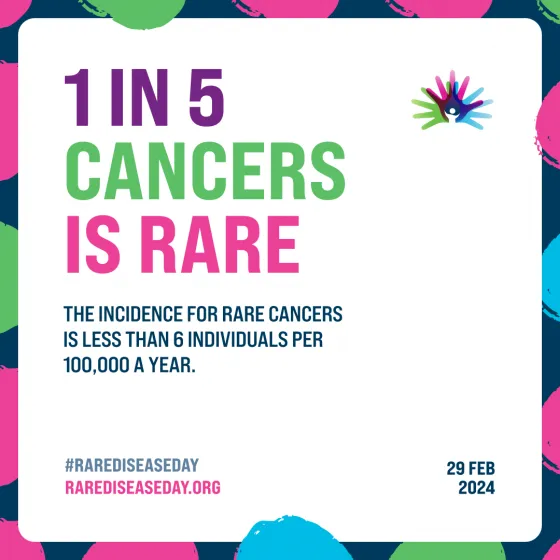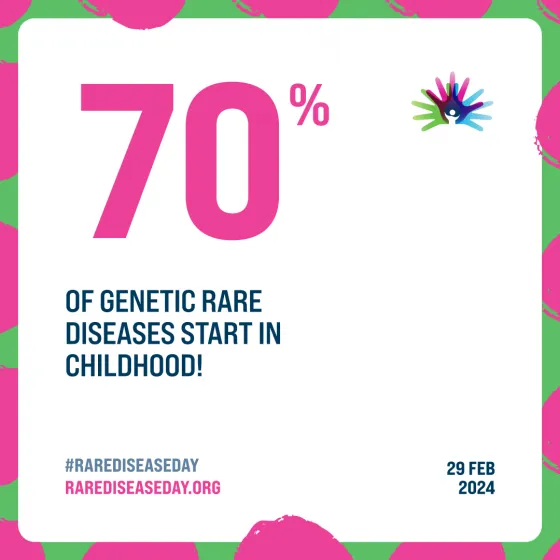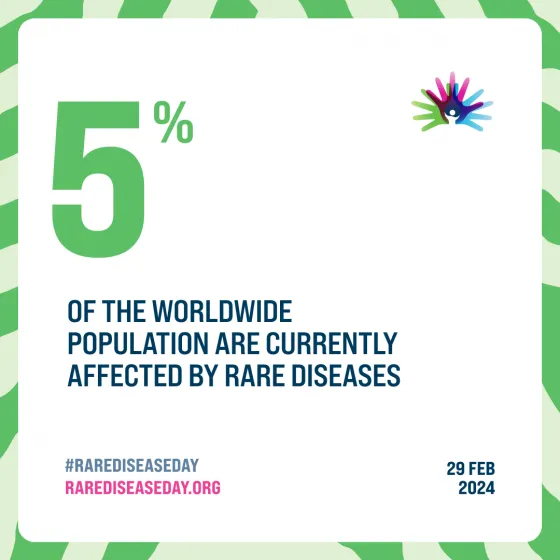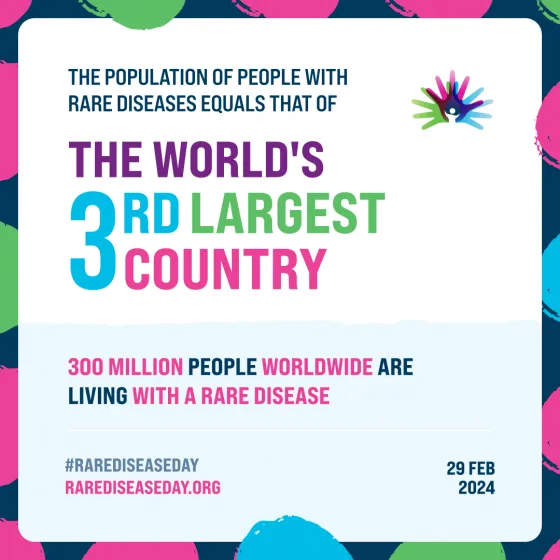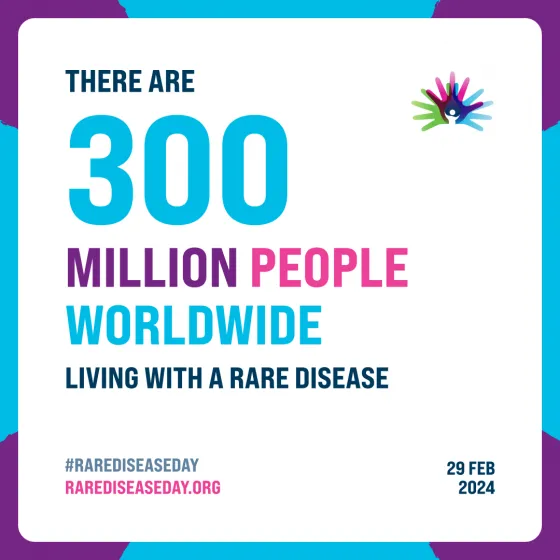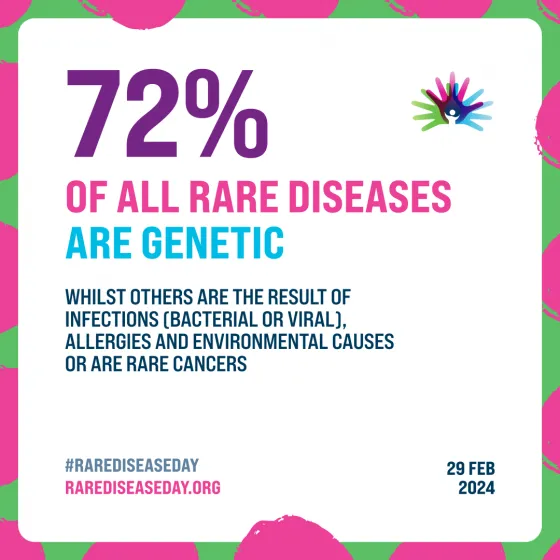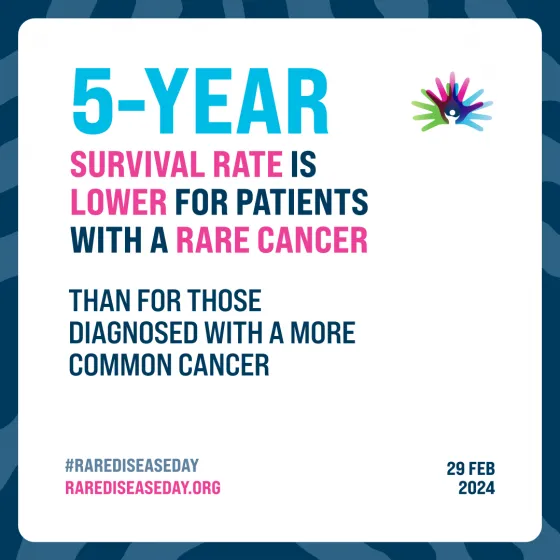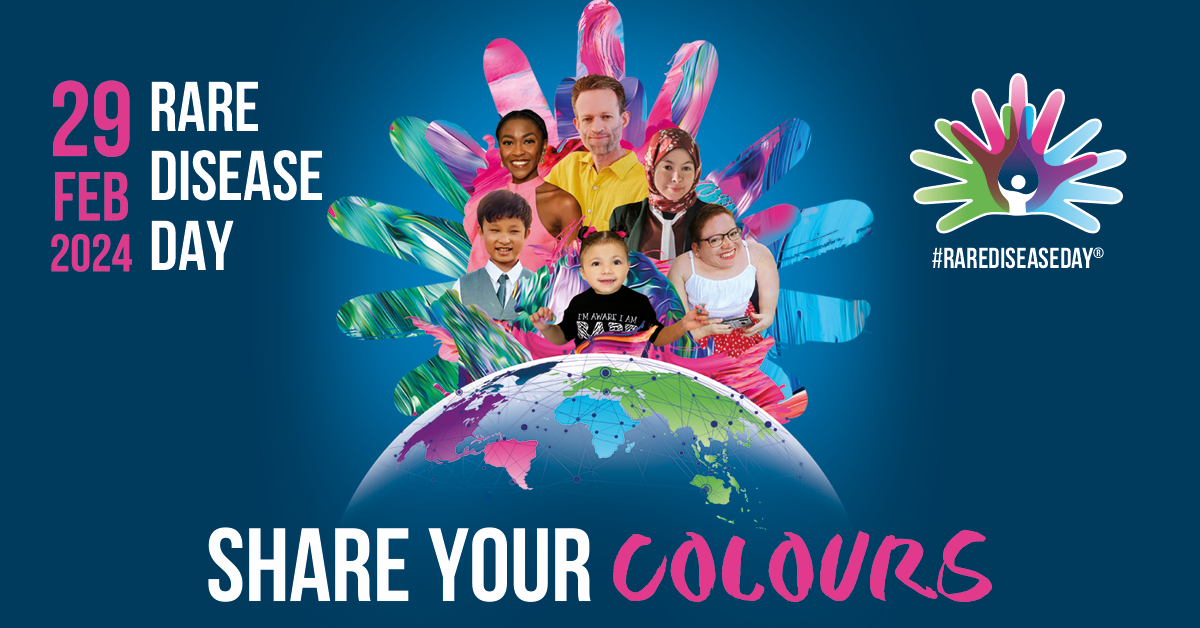
29th February is Rare Disease Day, a day dedicated to the Rare and Orphan Diseases
The Rare Disease Specialty Group of the World Federation of Neurology would like to remind everyone that 29th February is Rare Disease Day — Raising awareness and generating change for the 300 million people worldwide living with a rare disease, their families and carers.
Rare Disease Day is the globally-coordinated movement on rare diseases, working towards equity in social opportunity, healthcare, and access to diagnosis and therapies for people living with a rare disease. Since its creation in 2008, Rare Disease Day has played a critical part in building an international rare disease community that is multi-disease, global, and diverse– but united in purpose. The day was set up and is coordinated by EURORDIS ⧉ and 65+ national alliance patient organisation partners. It is observed every year on 28 February (or 29 in leap years)—the rarest day of the year.
With over 300 million people globally living with a rare disease, we join hands across borders and amidst the 6000+ rare diseases to advocate for equitable access to diagnosis, treatment, care, and social opportunities. Our key message for Rare Disease Day 2024 is Share Your Colours ⧉
What are the universal challenges faced by those living with a rare disease?
The WFN Rare Neurologic Diseases Specialty Group would like to remind neurologists globally that the majority of rare diseases have a neurologic involvement and have a neurologist as one of the main clinicians involved in diagnosis and care.
- The lack of scientific knowledge and quality information on the disease often results in a delay in diagnosis.
- The need for appropriate quality health care engenders inequalities and difficulties in access to treatment and care. This often results in heavy social and financial burdens on patients.
- Initial misdiagnosis is common owing to the broad diversity of disorders and relatively common symptoms which can hide underlying rare diseases. In addition, symptoms differ not only from disease to disease, but also from patient to patient suffering from the same disease.
- Research needs to be international to ensure that experts, researchers and clinicians are connected
In spite of some progress made in the knowledge of the pathogenesis and, for some, therapy of rare diseases, these disorders remain orphan, and there persists a continued need to raise awareness by the general doctors to inform patients and clinicians alike about the different diagnostic possibilities, available therapies and prevention.
Though Rare Disease Day is patient-led, everyone, including individuals, families, caregivers, healthcare professionals, researchers, clinicians, policy makers, industry representatives and the general public, can participate in raising awareness and taking action today for this vulnerable population who require immediate and urgent attention.
Rare Disease Day provides an energy and focal point that enables rare diseases advocacy work to progress on the local, national and international levels.
We encourage you to use: "Share your colours" and "Light up for Rare".
Don’t forget to add the #RareDiseaseDay hashtag to all your social media posts!
Join WFN Rare Neurologic Diseases Specialty Group as well many other international stakeholders in support of Rare Disease Day. You can do this by going to the Rare Disease Day website and sharing the many resources, banners and posts that are downloadable ⧉ from the website.
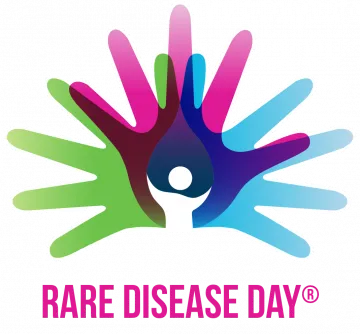
www.rarediseaseday.org ⧉
or contact Prof. Antonio Federico (antonio.federico@unisi.it)
Chair of Specialty Group on Rare Neurological Diseases




